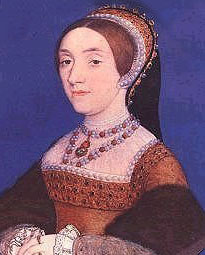 On this day in history, 7th November 1541, Henry VIII’s fifth wife, Catherine Howard, received important visitors in her apartments at Hampton Court Palace.
On this day in history, 7th November 1541, Henry VIII’s fifth wife, Catherine Howard, received important visitors in her apartments at Hampton Court Palace.
The visitors were Archbishop Thomas Cranmer and Catherine’s uncle, Thomas Howard, 3rd Duke of Norfolk, and they hadn’t come to exchange pleasantries or pass on a message from the king, they had come to interrogate Catherine and to arrange that she should be confined to her chambers. The investigation into John Lassell’s claims that Catherine had engaged in two sexual relationships during her time in the Dowager Duchess of Norfolk’s households at Lambeth and Horsham had proved them true, and now they needed to question the queen.
A heartbroken Henry VIII had left the palace the previous day and would never see Catherine again.
The queen was now under house arrest, with the doors to her chambers guarded and her jewels seized. Catherine burst into tears and became so hysterical that it was impossible to interrogate her. Archbishop Cranmer recorded in a letter to the king:
“I found her in such lamentation and heaviness, as I never saw no creature; so that it would have pitied any man’s heart in the world to have looked upon her: and in that vehement rage she continued, as they informed me which be about her, from my departure from her unto my return again […]”
He would have to return the next day.
Notes and Sources
- Letters and Papers, Foreign and Domestic, Henry VIII, Volume 16, 1540-1541, 1328.
- The Remains of Thomas Cranmer, Archbishop of Canterbury, Volume 1, p307-308.